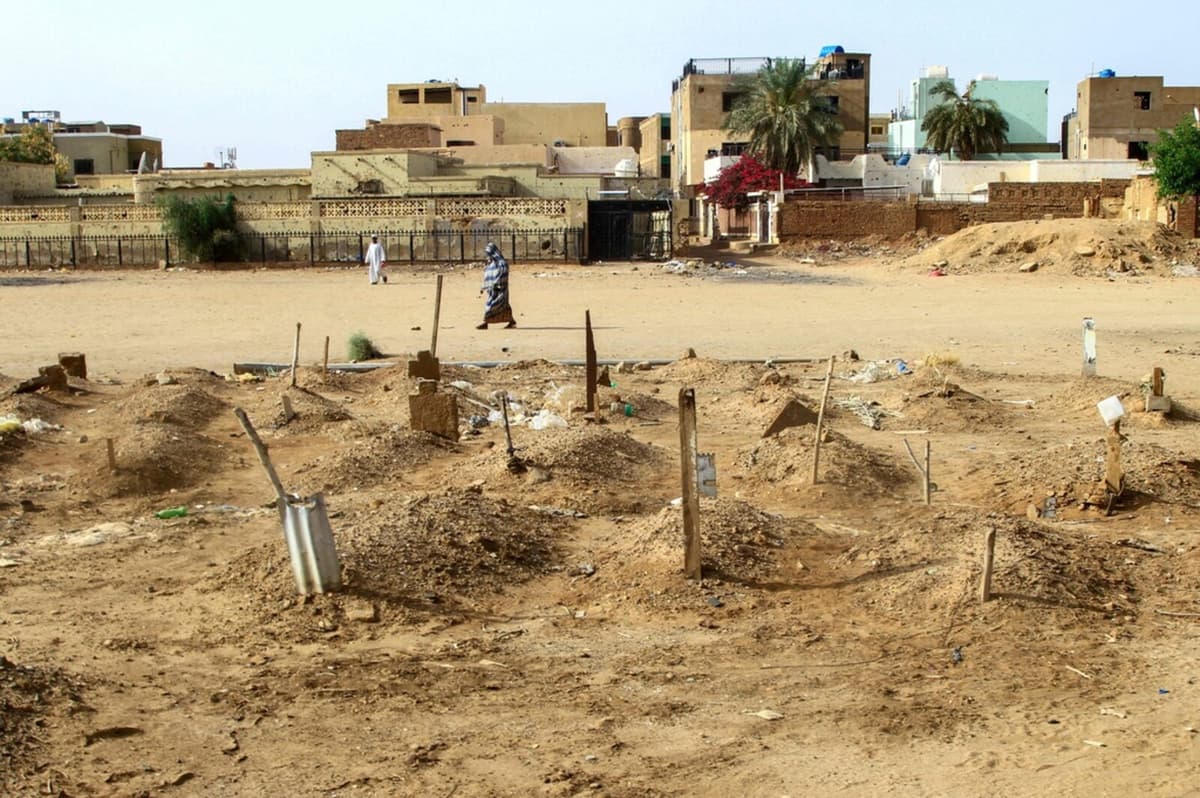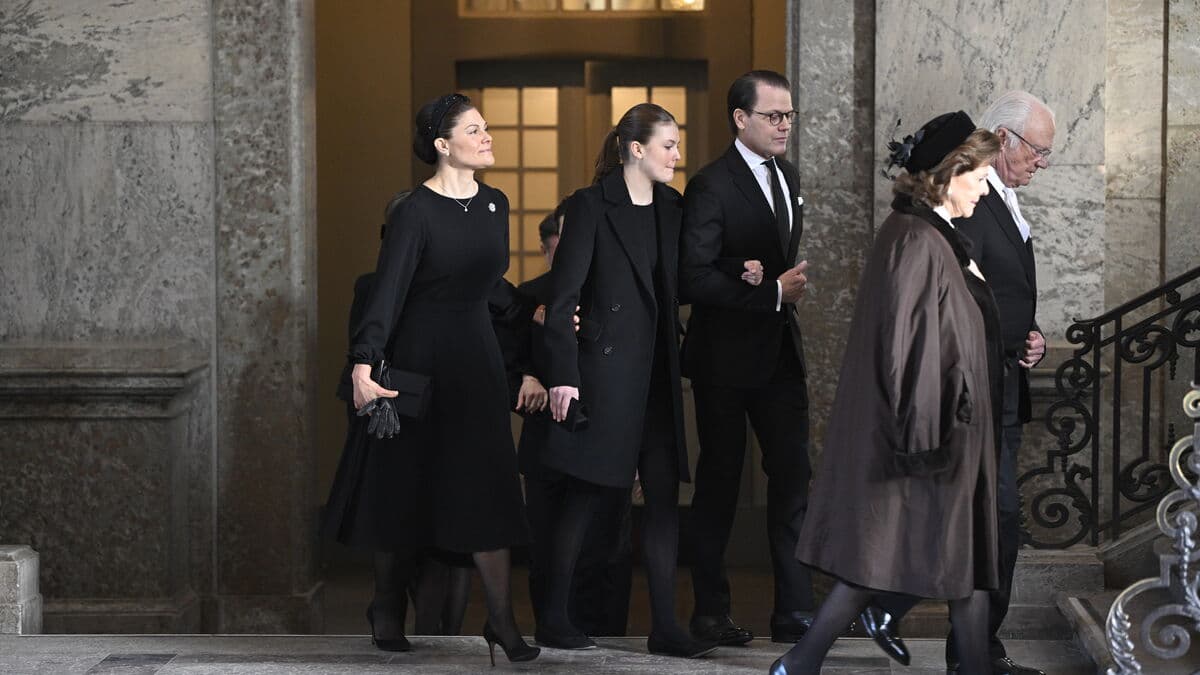The facade is pockmarked with bullet holes, but no gunfire can be heard anymore.
Jamil Morjan stands in front of his home in Sudan's capital Khartum, looking at a wooden plank sticking out of a mound in the ground. He has his hands in the air and is praying.
We couldn't take her to a graveyard, he says to AFP, referring to his mother, who was buried here in improvised circumstances.
When she died about a year ago, the civil war was raging at its worst on the city's streets.
We were forced to bury her outside the front door, says Morjan.
Difficult to move around
Sudan's regular army forces took control of Khartum last week, after nearly two years of catastrophic civil war that has played out on the city's streets. Gun battles have thundered among ruined buildings, snipers have lain on rooftops, and armed forces have attacked civilians who dared to venture outdoors.
Since the outbreak of war in April 2023, several million Khartum residents have been driven into flight, and tens of thousands are estimated to have been killed in the fighting and its many consequences. Just during the war's first 14 months, around 26,000 are believed to have fallen victim to violence.
Taking all these bodies to graveyards has been almost impossible in the war zone. Instead, holes have been dug in the ground: at people's homes, on vacant lots, or here and there along the war-torn streets and squares.
"All over the street"
In Khartum's twin city Omdurman, which lies west of the Nile, residents have used what was previously a football field. There, numerous planks, metal pieces, and other debris show where someone has been buried.
The volunteer gravedigger Mohammed al-Samani tells that the field has not been spared from the fighting. At one point, artillery fire struck, causing the ground to fly into the air.
There were rotting bodies all over the street, he says.
When they tried to reach real burial sites, they were stopped by militiamen and had to turn back with the coffins they were carrying, al-Samani recounts.
Until last week, it was the paramilitary RSF forces, the army's enemy, who controlled the streets where this was happening. These have been pushed back now that the army has retaken control of Khartum. The civil war is still raging, but for now mainly in other parts of the country.
The war in Sudan broke out in April 2023 when a split emerged within the country's ruling military junta. The military had seized power a couple of years earlier, after the fall of the long-time dictator Omar al-Bashir.
On one side stands General Abd al-Fattah al-Burhan, who commands the regular army. On the other side stands his former deputy Mohamed Hamdan Dagalo, who leads the so-called RSF militia.
Tens of thousands of people have been killed in the war. More than 14 million people have been driven into flight. The country has in practice been divided: the army controls areas in the north and east, and the RSF with coordinated groups controls areas in the west and south. The capital Khartum has also been divided and heavily contested.
Both parties have repeatedly been accused of war crimes.
The RSF has its origins in the notorious janjaweed militias, which under al-Bashir's rule were sent out to spread terror and quell the uprising in Darfur in western Sudan in the early 2000s.






